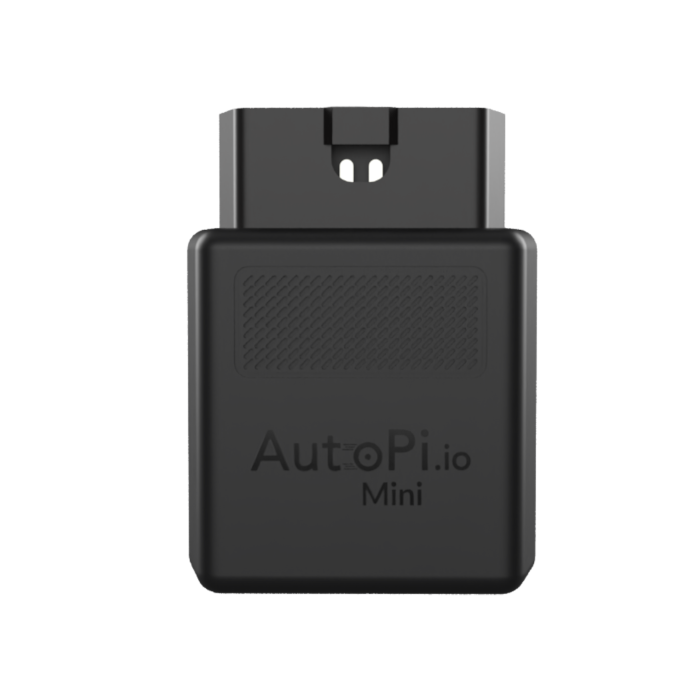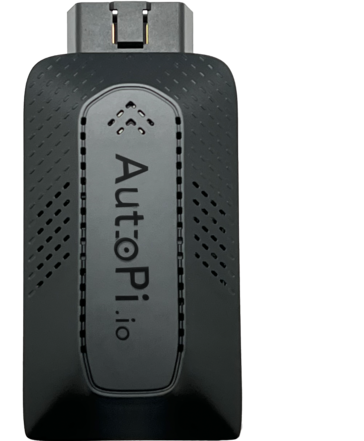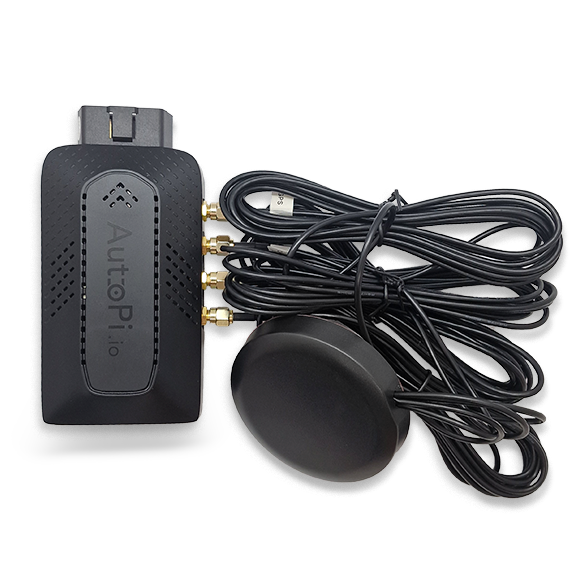Get the full overview
Compare all our devices
Compare the different features of all our devices currently available, to make sure you get the correct version for your project. Compare by Use case, function or technical specifications


Compare all features
See differences in the devices available
Mini |
TMU CM4 |
CAN-FD Pro |
|
|---|---|---|---|

|

|

|
|
| Description | Great for OEM parameters (EV) and fleet tracking |
Dedicated Edge device build on Raspberry Pi |
Full dual CAN bus reader for high data volume |
| CAN-FD interfaces | 0 | 2 | 2 |
| Data sampling frequency | 4 Samples/s | 100 Samples/s | ~4000 Samples/s |
| CAN Log File Format | Not supported | Not supported | MDF4 |
| Data Compression | Not supported | Data can be compressed before upload | Data can be compressed before upload or storage |
| CAN Silent Mode | Not supported | Not supported | Silent mode supported |
| CAN Filters | Not supported | CAN filters through DBC files | CAN filters through DBC files, reject or pass filters |
| CAN Error Frames | Not supported | Not supported | Support for logging of CAN Error frames |
| Remote Frames (RTR) | Not supported | Not supported | Support for logging/transmission of remote CAN frames (RTR) |
| Cyclic Logging | Not supported | Not supported | Cyclic logging supported (Oldest data is removed first) |
| CAN Transmit | Supported through loggers for OBD2 support |
Supported through loggers for OBD2 support |
Supports sending advanced CAN frames |
| CAN Heartbeat | Not supported | Not supported | Supports sending CAN heartbeat for network keep-alive |
| Timestamp precision | ms | µs | µs |
| Data storage duration | Hours | Weeks (depends on data storage configuration) | Weeks (depends on data storage configuration) |
| External data storage | Not supported | Can be added | External USB/Flash supported out of the box |
| OTA updates and configuration/td> | Yes, through AutoPi Cloud | Yes, through AutoPi Cloud | Yes, through AutoPi Cloud |
| Support for Docker images deployments |
Not supported | Yes, through AutoPi Cloud | Yes, through AutoPi Cloud |
| Support for Custom Code deployments |
Not supported | Yes, through AutoPi Cloud | Yes, through AutoPi Cloud |
Mini |
TMU CM4 |
CAN-FD Pro |
|
|---|---|---|---|

|

|

|
|
| Description | Great for OEM parameters (EV) and fleet tracking |
Dedicated Edge device build on Raspberry Pi |
Full dual CAN bus reader for high data volume |
Mini |
TMU CM4 |
CAN-FD Pro |
|
|---|---|---|---|

|

|

|
|
| Processor | Proprietary Micro Processor | Broadcom BCM2711 Quad-core Cortex-A72 (ARM v8) 64-bit SoC @ 1.5GHz |
Broadcom BCM2711 Quad-core Cortex-A72 (ARM v8) 64-bit SoC @ 1.5GHz |
| Memory | Proprietary | 1GB LPDDR4 SDRAM | 4GB LPDDR4 SDRAM |
| Storage | Proprietary | 8GB on board eMMC | 32GB on board eMMC |
| Size and Weight | 67,2 x 49,6 x 25 mm (L x W x H) - 63g | 133,5 x 68,2 x 36,6 (L x W x H) - 170g | 133,5 x 68,2 x 36,6 (L x W x H) - 170g |
| Modem/Connectivity |
Integrated 4G/LTE Cat 1 connection EMEA Variant - 4G (LTE-FDD): B1, B3, B7, B8, B20, B28 EMEA Variant - 4G (LTE-TDD): B38, B40, B41 EMEA Variant - 2G (GSM): B2, B3, B5, B8 APAC/LATAM Variant - 4G (LTE-FDD): B1, B2, B3, B4, B5, B7, B8, B20, B28 APAC/LATAM Variant - 4G (LTE-TDD): B40 APAC/LATAM Variant - 2G (GSM): B2, B3, B5, B8 NA Variant - 4G (LTE FDD): B2, B4, B5, B12, B13 NA Variant - 3G (WCDMA): B2, B4, B5 |
Integrated 4G/LTE Cat 4 connection (3G/EDGE fallback) 150Mbit DL / 50Mbit UL 4G LTE Bands (Global): B1 / B2 / B3 / B4 / B5 / B7 / B8 / B12 / B13 / B18 / B19 / B20 / B25 / B26 / B28 / B38 / B39 / B40 / B41 3G Fallback (WCDMA): B1 / B2 / B4 / B5 / B6 / B8 / B19 EDGE Fallback: B2 / B3 / B5 / B8 / Quad-band |
Integrated 4G/LTE Cat 4 connection (3G/EDGE fallback) 150Mbit DL / 50Mbit UL 4G LTE Bands (Global): B1 / B2 / B3 / B4 / B5 / B7 / B8 / B12 / B13 / B18 / B19 / B20 / B25 / B26 / B28 / B38 / B39 / B40 / B41 3G Fallback (WCDMA): B1 / B2 / B4 / B5 / B6 / B8 / B19 EDGE Fallback: B2 / B3 / B5 / B8 / Quad-band |
| Certifications | CE/RED/UKCA, E-Mark, EAC, RoHS, REACH, RCM, SDPPI POSTEL, CITC |
EN 301 489-1 v2.2.0, EN55025:2008, EN 50498 and Directive 2004/104/EC, ISO 7637-2:2011, EN 301 489-3 V2.1.1, FCC 47 CFR Part 15, Class A:10-1-17 Edition |
EN 301 489-1 v2.2.0, EN55025:2008, EN 50498 and Directive 2004/104/EC, ISO 7637-2:2011, EN 301 489-3 V2.1.1, FCC 47 CFR Part 15, Class A:10-1-17 Edition |
| Secure element | None | - Hardware Based Secure Key Management - Public Key Algorithms: RSA and ECC asymmetric, AES and DES symmetric cryptography algorithms. HMAC, CMAC, SHA-1, SHA-224/256/384/512 operations - Crypto Curves: ECC NIST, Brainpool, Twisted Edwards Ed2551, Montgomery Curve25519, Koblitz, Barreto-Naehrig Curve, Montgomery Curve448 - Secure Storage of Keys, Certificates and Data - Unique Serial Number - Intrusion Detection |
- Hardware Based Secure Key Management - Public Key Algorithms: RSA and ECC asymmetric, AES and DES symmetric cryptography algorithms. HMAC, CMAC, SHA-1, SHA-224/256/384/512 operations - Crypto Curves: ECC NIST, Brainpool, Twisted Edwards Ed2551, Montgomery Curve25519, Koblitz, Barreto-Naehrig Curve, Montgomery Curve448 - Secure Storage of Keys, Certificates and Data - Unique Serial Number - Intrusion Detection |
| Power |
Built-in Power Management system to prevent the vehicle’s battery from being drained Input voltage range: 10–30 V DC with overvoltage and reverse polarity protection Back-up battery: 170 mAh Li-Ion battery (0.63 Wh) Power consumption: At 12V < 3 mA (Ultra Deep Sleep) At 12V < 5 mA (Deep Sleep) At 12V < 16 mA (Online Deep Sleep) At 12V < 18 mA (GPS Sleep) At 12V < 33 mA (nominal) |
Line Voltage: 12.5V DC (Car battery power). Up to 35V (Trucks). Support for trucks with up to 35V Built-in Power Management system to prevent the vehicle’s battery from being drained |
Line Voltage: 12.5V DC (Car battery power). Up to 35V (Trucks). Support for trucks with up to 35V Built-in Power Management system to prevent the vehicle’s battery from being drained |
| Expansion options | None |
2 X USB: USB 2.0 (Max. theoretical power 2.1A divided between the two ports) Ethernet: Built in Gigabit Ethernet GPIO: UART/I2C/SPI (via HAT) |
2 X USB: USB 2.0 (Max. theoretical power 2.1A divided between the two ports) Ethernet: Built in Gigabit Ethernet GPIO: UART/I2C/SPI (via HAT) |
| Wireless | Bluetooth: Bluetooth 4.0 + Low Energy (BLE) |
Built on Cypress CYW43455 Chipset WiFi: 2.4GHz and 5GHz IEEE 802.11.b/g/n/ac wireless LAN Bluetooth: Bluetooth 5.0 + Bluetooth Low Energy (BLE) |
Built on Cypress CYW43455 Chipset WiFi: 2.4GHz and 5GHz IEEE 802.11.b/g/n/ac wireless LAN Bluetooth: Bluetooth 5.0 + Bluetooth Low Energy (BLE) |
| Accelerometer | Built in 3-axis accelerometer | Built in 3-axis accelerometer | Built in 3-axis accelerometer |
| Gyroscope | None | Built in 3-axis gyroscope | Built in 3-axis gyroscope |
| Automotive Interface | Data: K-Line, CAN bus data Data reading: Up to 32 vehicle onboard parameter Supported OBD protocols: ISO 9141-2 (5 baud init, 10.4 kbaud) ISO 14230-4 KWP (5 baud init, 10.4 kbaud) ISO 14230-4 KWP (fast init, 10.4 kbaud) ISO 15765-4 CAN (11 bit ID, 250 kbaud) ISO 15765-4 CAN (11 bit ID, 500 kbaud) ISO 15765-4 CAN (29 bit ID, 250 kbaud) ISO 15765-4 CAN (29 bit ID, 500 kbaud) |
2 X CAN-FD: CAN-FD interface with up to 5Mbps Data rate with integrated CAN data filter DoIP: Upgradeable to allow support for DoIP |
2 X CAN-FD: CAN-FD interface with up to 5Mbps Data rate with integrated CAN data filter DoIP: Upgradeable to allow support for DoIP |
| Input slots | SIM Card: Nano SIM | SIM Card: Nano SIM | SIM Card: Nano SIM |
| Audio | None | Built-in speakers | Built-in speakers |
| Video out | None | HDMI @ 1080P60 Video Output | HDMI @ 1080P60 Video Output |
| Antennas | 1x 4G/LTE internal 1x GPS internal |
2x 4G/LTE internal (Patch) 1x GPS internal (Ceramic) 1x WiFi/BLE internal (PCB) |
2x 4G/LTE external (SMA) 1x GPS external (SMA) 1x WiFi/BLE external (SMA) |
| Operating environment | Operating Temperature: -40 °C to +85 °C Relative Humidity: 5% to 95% Noncondensing |
Operating Temperature: -20° TO 70° C (-4° TO 158° F) Relative Humidity: 0% TO 75% Noncondensin |
Operating Temperature: -20° TO 70° C (-4° TO 158° F) Relative Humidity: 0% TO 75% Noncondensin |
| Operating system | Proprietary Closed Source OS | Raspbian OS with preconfigured AutoPi Core | Raspbian OS with preconfigured AutoPi Core |
| Datasheet | Link | Link | Link |
| Cost | 89 EUR | 235 EUR | 599 EUR |
Device availability
Get your device today and get started!

AutoPi CAN-FD Pro
Our most powerful device to date, designed for full speed automotive datalogging of dual CAN-FD channels. The device comes with 32Gb storage, which is extendable with a flashdrive.
In stock | Order now -> Ships tomorrow.
AutoPi Mini
Build for fleet volume scaling and ease of install. CAN bus ready with support for legacy protocols. Support wide range of OEM Parameters. Comes with connectivity built-in.
In stock | Order now -> Ships tomorrow.

AutoPi Mini
Build for fleet scaling and ease of install. CAN bus ready, support for legacy protocols. Support wide range of OEM Parameters.
Something unclear?
Frequently asked questions
We offer a diverse range of telematics devices to suit various needs. If you're looking for something highly customizable, our CM4 device is perfect for custom projects and larger-scale operations. It offers flexibility and a wide array of features that can be tailored to your specific requirements.
It's an excellent choice for those who need a reliable, industry-standard solution.
Lastly, if ease of use is a priority for you, our Mini device is designed to be plug-and-play, making it incredibly user-friendly and ideal for quick setup. Whether you're tackling a complex project or just getting started in telematics, we have a device that will meet your needs.
Our devices are geared towards businesses and tech-savvy developers who work in the field of telematics. Whether you're an industry leader or a developer looking to innovate, we have the perfect device to fit your needs..
Absolutely! In addition to top-notch customer support, we offer development hours to help you get the most out of your device.
You can tap into the expertise of our skilled team for any project needs. Plus, all of our devices integrate seamlessly with the AutoPi Cloud, our fleet and device management system. This enables you to monitor and manage all your devices from a centralized platform, streamlining your operations and maximizing efficiency.
We're all about efficiency here at AutoPi. Our products are usually shipped within 2-3 days. Plus, all of our products are generally in stock and ready to be dispatched. We'll also send you a tracking link so you can keep an eye on your order every step of the way.
If you've got more questions or need clarification, don't hesitate to reach out to us. Our team is always ready to help you make the most informed decision possible.
STILL HAVE QUESTIONS?
Get in touch with us – We're ready to answer any and all questions.
